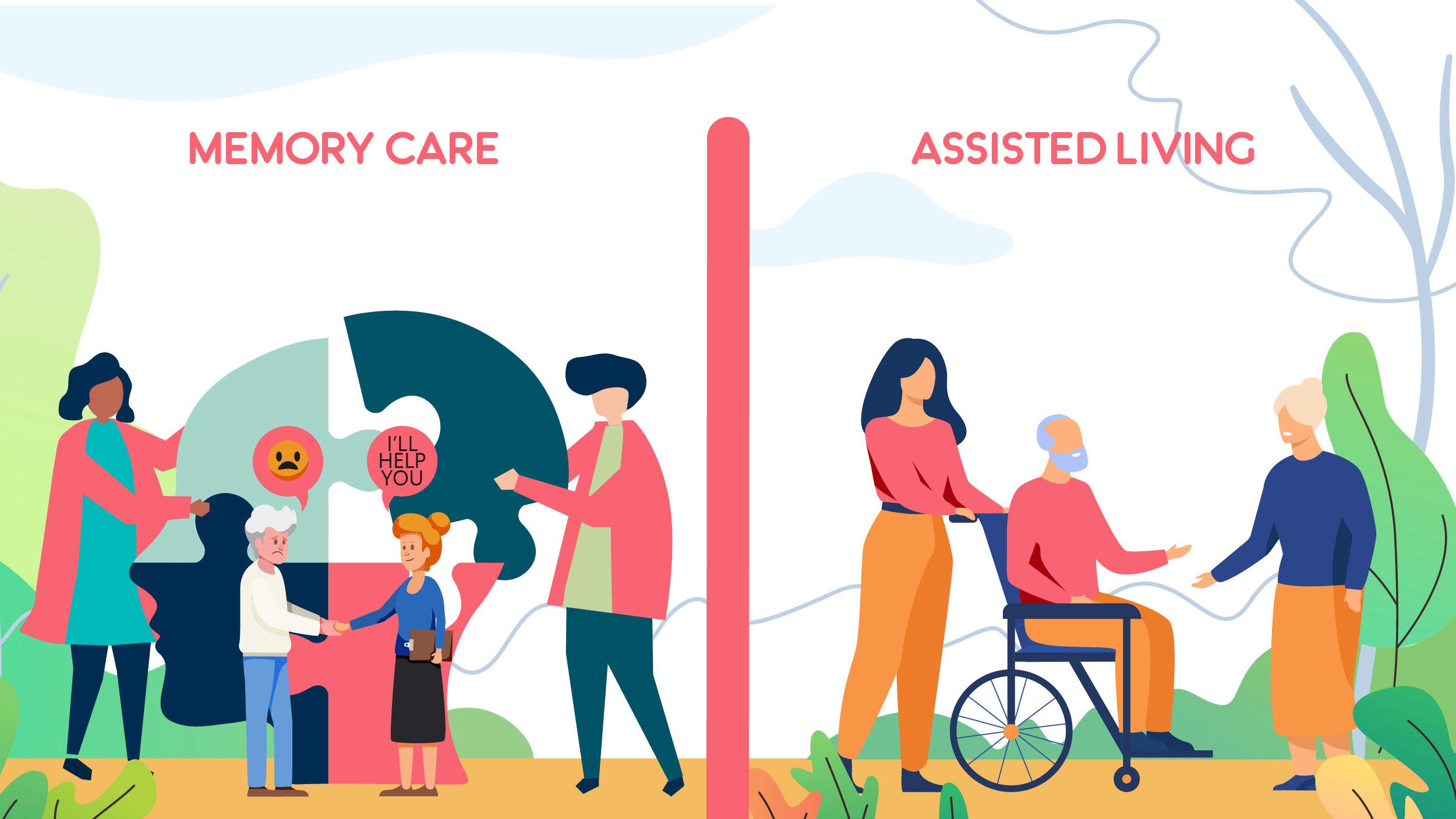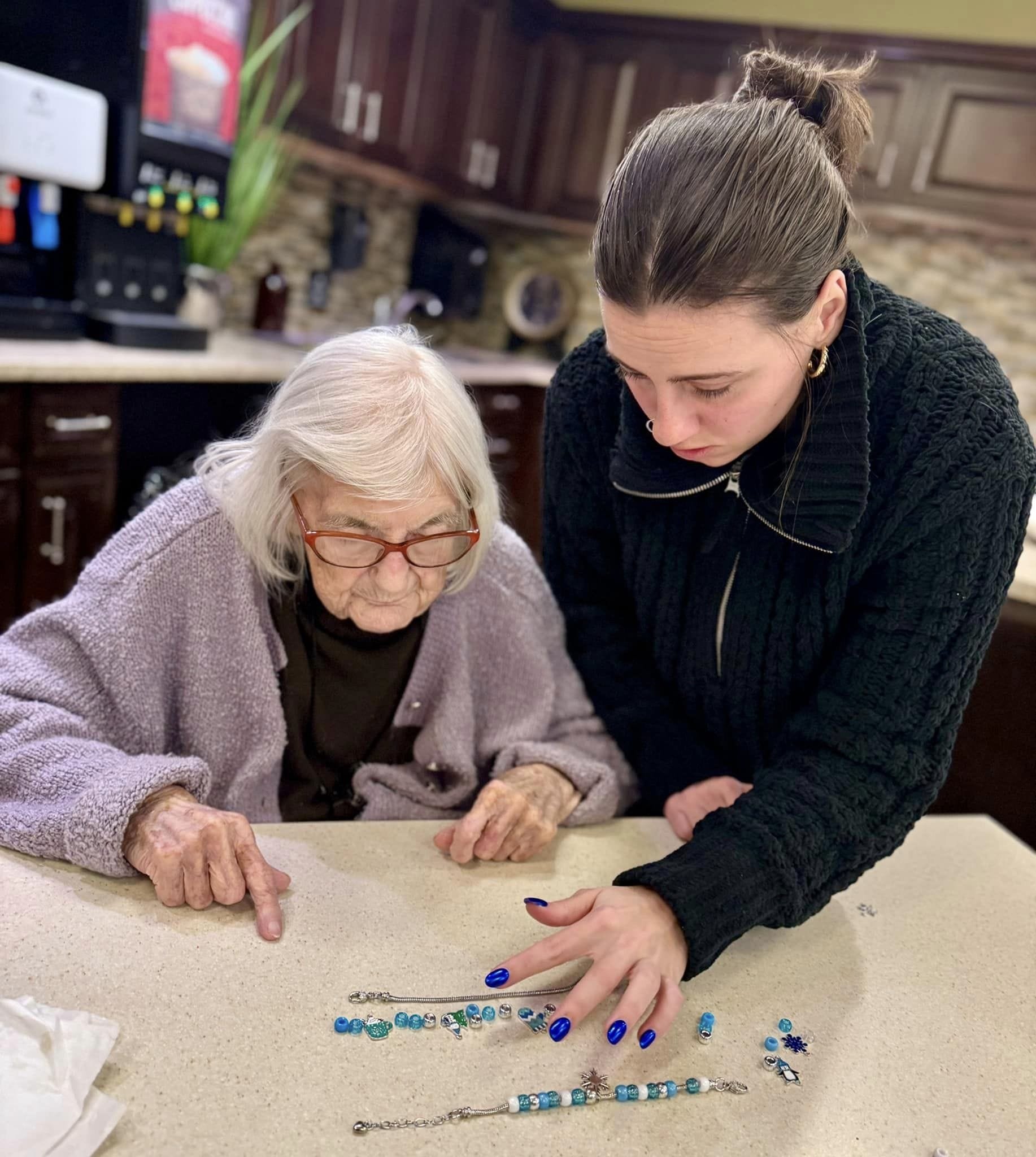Family-Oriented Facilities Offering Personalized Alzheimers Care Charlotte
Compassionate Alzheimer's Care for Your Liked Ones
Acknowledging the psychological and mental demands of people affected by this problem is critical in enhancing their high quality of life. As we explore the different techniques and techniques that can change caregiving right into an extra caring experience, it comes to be clear that the trip is as much regarding the caretaker as it is about the individual with Alzheimer's.
Comprehending Alzheimer's Condition
Alzheimer's disease is a modern neurodegenerative problem that largely impacts cognitive function, leading to memory loss, impaired thinking, and adjustments in habits. It is the most common type of dementia, making up 60-80% of all instances. The disease normally shows up in individuals aged 65 and older, although early-onset Alzheimer's can happen in younger individuals.
The pathophysiology of Alzheimer's involves the build-up of amyloid plaques and neurofibrillary tangles in the brain, resulting in neuronal deterioration and synaptic loss. These adjustments interfere with communication in between mind cells, progressively hindering cognitive abilities and day-to-day functioning. Early symptoms may include problem keeping in mind current events and difficulties in analytic, which can rise to disorientation and problem with language.
As the condition advancements, people may exhibit extensive memory deficiencies, confusion concerning time and area, and problem recognizing enjoyed ones. Behavioral adjustments, consisting of anxiety, withdrawal, and anxiousness, may also happen. Comprehending the medical development of Alzheimer's is critical for caretakers and doctor, as it informs efficient administration techniques and treatments tailored to the needs of individuals affected by this devastating condition.
The Relevance of Compassionate Treatment
Caring treatment is important in sustaining people with Alzheimer's condition, as it considerably enhances their quality of life. This technique focuses on the mental and emotional wellness of patients, fostering an atmosphere that promotes respect, self-respect, and understanding. People with Alzheimer's commonly experience confusion, stress and anxiety, and stress, which can be reduced through thoughtful communications.
Compassion in caregiving not just aids in acknowledging the one-of-a-kind demands of each individual yet also strengthens the caregiver-patient partnership. When caregivers approach their functions with compassion, they produce a secure room where individuals feel valued and recognized, which can decrease behavioral obstacles connected with the illness. This supportive atmosphere motivates better communication and engagement, facilitating a more reliable feedback to the treatment given.
Moreover, thoughtful care extends beyond the patient; it also incorporates support for families. Caretakers who practice empathy are a lot more outfitted to attend to the psychological burden faced by loved ones, offering reassurance and assistance through a challenging trip. Inevitably, the value of compassionate treatment hinges on its capability to change the caregiving experience, leading to improved outcomes for both individuals with Alzheimer's and their households.
Practical Caregiving Strategies
Effective caregiving for individuals with Alzheimer's disease needs practical methods that resolve the unique difficulties posed by the condition. Among the leading approaches is establishing a constant everyday routine, which can give framework and familiarity, decreasing stress and anxiety for both the caretaker and the individual. Caregivers ought to likewise streamline tasks by breaking them down right into smaller sized, workable steps, thereby improving the person's sense of achievement and lessening stress.
Interaction is an additional essential element; caregivers need to make use of clear, basic language and preserve eye call to foster understanding. Making use of aesthetic signs, such as tags or images, can even more aid comprehension and navigating in the atmosphere.
Safety is extremely important. Adapting the home to get rid of threats-- such as mounting or securing carpets grab bars-- can assist protect against mishaps. Additionally, caretakers must encourage independence by enabling people to take part in acquainted activities, which can strengthen self-confidence and advertise well-being.
Emotional Assistance Strategies
Emotional wellness is an important part of look after people with Alzheimer's disease, as it directly affects their lifestyle. Alzheimers Care Charlotte. Providing emotional support methods can substantially improve their day-to-day experiences and cultivate a complacency and belonging
One reliable technique is active listening, which includes providing complete focus to the person, recognizing their feelings, and responding with empathy. This method helps the person feel valued and comprehended, minimizing sensations of isolation or irritation. In addition, using validation therapy can be useful; rather than correcting misunderstandings, caregivers can verify the person's experiences and feelings, promoting a relaxing atmosphere.
Participating in memory treatment is an additional powerful method, enabling people to share tales, memories, and sensations linked with their past. This not only stimulates cognitive feature their explanation yet additionally strengthens psychological connections. Including acquainted music or art can additionally evoke favorable feelings and spark happy interactions.
Additionally, ensuring routine physical touch, such as holding hands or gentle hugs, can give convenience and reassurance, reinforcing emotional bonds. These methods, when constantly applied, can develop a nurturing atmosphere that supports the psychological health of individuals with Alzheimer's, enhancing their total wellness.
Producing an Encouraging Environment

To start with, think about the physical format of the home. Clutter-free locations, acquainted furnishings setups, and well-defined paths can decrease confusion and advertise flexibility. Using calming shades and ample illumination can further boost the environment, making it a lot more inviting and much less daunting.
Second of all, consistency is crucial. Keeping a foreseeable everyday routine aids individuals with Alzheimer's feeling much more secure. Familiar tasks, routine dish times, and scheduled social communications can considerably lower anxiety and disorientation.
In addition, sensory components play an essential duty. Incorporating acquainted aromas, music, and responsive things can stimulate favorable memories and boost involvement. Customizing the room with cherished photographs and purposeful things can also foster a sense of identity.
Conclusion
Thoughtful Alzheimer's treatment considerably enhances the top quality of life for individuals affected by this modern disease. Inevitably, this approach not just offers essential comfort and support but additionally equips people to navigate the intricacies of Alzheimer's with dignity and elegance.
As we discover the different approaches and techniques that can change caregiving right into an extra compassionate experience, it becomes clear that the journey is as much concerning the caretaker as it is regarding the private with Alzheimer's.

Thoughtful treatment is essential in supporting individuals with Alzheimer's illness, as it dramatically enhances their top quality of life - Alzheimers Care Charlotte. Ultimately, the significance of compassionate care lies in its capability to change the caregiving experience, leading to boosted outcomes for both individuals with Alzheimer's and their families
Compassionate Alzheimer's treatment substantially enhances the top quality of life for individuals affected by this dynamic illness.